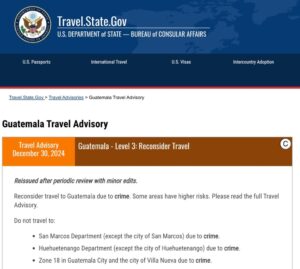
Early retirement has been a trending topic in recent years, epitomized by the FIRE movement — “Financial Independence, Retire Early.” Under this program, younger workers stash away as much as they can in their working years so that they can retire in their 40s or even 30s.
See: 10 Ways for Retirees To Cut Back on Expenses in 2024
Read Next: Pocket an Extra $400 a Month With This Simple Hack
While it’s an exciting concept, there are certainly some hardships involved with retiring early. There are also many myths floating around about exactly what it means to retire early. Here’s a look at some of these common myths and why they don’t necessarily apply to all people who plan to retire early.


You Will Run Out of Money
One of the greatest myths about early retirement is that you will run out of money if you retire in your 30s or 40s. This is something of a circular argument, because you shouldn’t be retiring early unless you’ve already got enough money to last you through retirement. In other words, you should plan and fund your retirement before you decide to retire, not the other way around.
Just as if you retired at the traditional retirement age, you’ll need to budget your income and expenses and plan out your investments. If you can plan out a budget and investment strategy that will last you through any retirement — even an early retirement — you shouldn’t have to worry about running out of money.
Retirement Planning: How Much the Average Person 65 and Older Spends Monthly
Discover: 5 Places To Retire That Are Similar To Florida But Way Cheaper
Sponsored: Get Paid To Scroll. Start Now


You Will Get Bored
One of the great fears about retiring at any age, but particularly at an early one, is that you will get bored or run out of things to do. After all, if you retire at, say, 40, you might be looking at 50 or more years of retirement.
But if you’re planning an early retirement, it’s not likely that you’re retiring because you are burned out of work and looking to just lie on a beach — as glorious as that might sound, even the most avid beach lover might actually get tired of that after 50 years straight.
Rather, those looking to retire early are generally ambitious and looking to begin a new chapter of life. Some maintain side gigs, while others start foundations or perform charitable work. The point is, yes, if you have no active plans for your retirement, you might consider staying in the working world a bit longer. But if you’re like most early retirees, you have a plan, and that will keep you going throughout your long retirement.
Check Out: 8 Jobs for Retirees That Don’t Require Much Experience


You’ll Have To Cut Back on Spending
It seems logical to think that if you’re embarking on a long retirement, you’ll have to cut back on spending just to make ends meet. And if that is indeed the case, then early retirement could sound like something terrible. But the truth is that if you plan ahead, you won’t necessarily have to cut back at all on your spending.
The idea of early retirement is to have sufficient funding to afford the lifestyle you want — otherwise, you should be spending more time in the working world. But between adequately funded savings and investment accounts and possible side gigs, a well-planned early retirement need not require spending cutbacks at all.


You Won’t Have Insurance
If you stop working, you may indeed lose your health insurance. This is a primary concern when it comes to retiring early. However, once again, planning is everything.
There are plenty of private insurance options available, and if you qualify for the subsidies offered by the Affordable Care Act, your insurance might be low-cost or even free. This is particularly true if you’re earning less income in retirement than you were when you were working.


You Can’t Socialize Without a Workplace
One of the benefits of working with others is that it helps meet your human need to socialize. Chatting with coworkers every day and going to work-sponsored group outings is indeed a great way to meet the need for socialization, but to think that would just go away once you retire is nonsense.
If you retire early, you’ll actually have more free time to visit friends and family, and if you’re so inclined, you’re likely to both rekindle old friendships and make new ones, as well.
Learn: 7 Bills You Never Have To Pay When You Retire


You Won’t Have a Purpose
Generally, people who plan to retire early are goal-oriented and driven. This personality style typically isn’t lacking for a purpose. Rather, many people who plan to retire early are actually eager to get on to the next phase of their lives, which may be their true purpose.
Even if you don’t fall into this category, there are few people who want to retire early to simply lie around. Once your free time opens up, you’re likely to focus your life on things that truly make you feel fulfilled, be that charity work, spending more time with family and friends, traveling the world or learning new skills. Once you retire early, the world opens up, and finding a purpose won’t likely be a problem.


You Will Get Depressed
A common myth tossed around is that in early retirement — or even in any retirement — people get depressed. Certainly, some retirees find themselves depressed, and some may even exhibit signs of clinical depression. However, like all of life, early retirement is what you make of it.
If you view it as the beginning of a great opportunity to explore all the aspects of life you have ever wanted, depression is less likely to creep into the picture. If you plan to just sit on a couch all day and not interact with anyone, then yes, depression may become an issue. But this is true in pre-retirement life, as well.
Have a goal, have a plan, have some dreams, and early retirement may just exceed them.


You Can’t Retire Early With Kids
It’s true, if you have kids, retiring early can take some additional planning — and money. However, this doesn’t mean that it isn’t possible. You’ll simply need to include the expenses for your kids as line items in your budget.
Might it mean working a few extra years before you retire? Perhaps. But there are ways to make your money stretch so that retiring early with kids doesn’t have to be a huge financial burden. For example, if your kids go to public schools, including universities, your educational expenses will be low. If you plan your meals carefully, you can manage to feed your family for not much more than you yourself would spend.
Clever life hacks — and additional savings — can go a long way toward allowing you to retire early, even with kids.
ChatGPT Unveils: 15 Best Cities To Retire for 2024


You Have To Save 50% of Your Income To Retire Early
An important part of successfully retiring early is simple mathematics. Yes, you do need to put aside a large amount of savings to retire early. Yes, the more you can put away, the earlier you may be able to retire. But do you absolutely have to save 50% of your income to retire early? Not at all.
Imagine that you and your spouse each earn $50,000 per year, which is about the same as the average weekly wage of $1,118, according to the U.S. Bureau of Labor Statistics. That puts your household at $100,000 in earnings per year.
If you can save even just 25% of your income and invest it at an 8% return, in 20 years you’ll have nearly $1.3 million saved. If you start at age 25, that means you’ll retire at 45. If your income rises over time, as is typical, that final savings number will be even higher.
Now, $1.3 million may or may not work for a retired couple at age 45, but the point is that you can reach this level saving just 25% of your income, not 50%. If you can increase your savings, your return or your annual salary, you’ll be well on your way.


Retiring Early Is the Key to Happiness
As a final thought, although there are many benefits to retiring early, if you’re looking for it to be the complete key to happiness in your life, you may be in for a disappointment.
Although early retirement offers freedom to do many things, it doesn’t automatically bring happiness along with it. Just like in your working life, you’ll have to find the things that bring you joy and contentment and follow them. The mere act of leaving the workplace may be a temporary joy, but you’ll have to find those things that give you lifelong happiness if you’re to enjoy your early retirement.
Laura Beck contributed to the reporting for this article.
More From GOBankingRates
This article originally appeared on GOBankingRates.com: 10 Myths About Early Retirement
Discover more from Slow Travel News
Subscribe to get the latest posts sent to your email.



